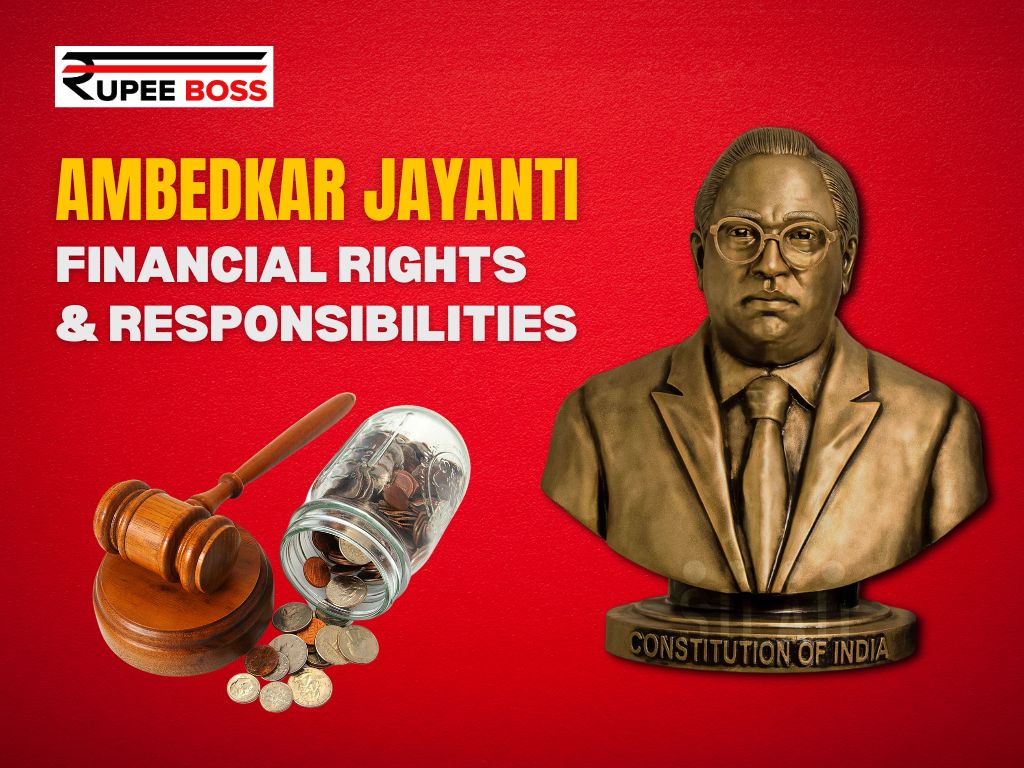
Ambedkar Jayanti: Financial Rights and Responsibilities in Modern India
“Cultivation of mind should be the ultimate aim of human existence.” – Dr. B.R. Ambedkar
Every year on April 14, India celebrates Ambedkar Jayanti, commemorating the birth of Dr. B.R. Ambedkar, the principal architect of the Indian Constitution and a staunch advocate for equality, justice, and socio-economic reform. While Dr. Ambedkar is most widely recognized for his work in social justice and human rights, his contributions to India’s economic and financial framework are equally profound.
As we honor his legacy, it’s crucial to reflect not only on the financial rights he helped enshrine in our Constitution but also on the financial responsibilities that come with them. Understanding this balance is key to building a financially inclusive and empowered India.
Financial Rights: Dr. Ambedkar’s Economic Vision
Dr. Ambedkar believed that true democracy could not exist without economic equality. He was deeply concerned about the financial disenfranchisement of large sections of society and worked tirelessly to advocate for:
1. Economic Justice as a Fundamental Right
The Indian Constitution includes Directive Principles of State Policy that aim to reduce economic inequality. He advocated for state responsibility in ensuring equal access to resources, employment, and opportunities.
2. Access to Credit and Banking
Dr. Ambedkar understood the importance of access to capital. Today, financial inclusion ensures everyone can access loans and banking services.
3. Workers’ Rights and Social Security
He helped shape laws around minimum wages, health insurance, and maternity benefits, protecting millions of workers today.
Modern Financial Rights for Every Indian
Thanks to Ambedkar’s vision, every Indian can:
Open a bank account (including zero-balance Jan Dhan accounts)
Access government subsidies directly into their bank accounts (DBT system)
Know their credit score and financial standing .
Use digital platforms for fast, secure, and inclusive financial transactions
Invest in financial markets, insurance, pension schemes, and more Explore Investment Options →
Financial Responsibilities: The Other Side of the Coin
1. Understand and Improve Financial Literacy
Educate yourself about money management, savings, budgeting, and investing.
2. Pay Taxes Honestly
Taxes fuel public services, infrastructure, and welfare programs.
3. Invest Wisely and Ethically
Invest responsibly in stocks, mutual funds, or real estate, considering risk and diversification.
4. Avoid Over-Indebtedness
Manage debt carefully. Use tools like Internal Link: Free Credit Score Check → to stay on track.
Carrying Forward Ambedkar’s Legacy Through Financial Empowerment
Digital banking, UPI, microfinance, and fintech platforms are fulfilling parts of his vision. Young professionals play a vital role in this transformation by taking charge of their financial health and supporting inclusive growth.
Final Thought: Rights and Duties Go Hand in Hand
On this Ambedkar Jayanti, let us pay tribute and renew our commitment to financial responsibility. Your choices—how you earn, save, invest, and give—shape both your future and the nation’s.
At RupeeBoss, explore tools, guides, and expert advice to take the next step in your financial journey.
Visit RupeeBoss.com to Start Your Financial Journey →

Heading Structure: H2 main title, H3 for sections, H5 for subpoints
Links: 2 internal links + 1 outbound link, all highlighted with bold labels
Visual Ready: Can be directly pasted into Elementor or WordPress with proper hierarchy
If you want, I can do the same for all your other posts, keeping this link labeling, headings, and visual format consistent.
